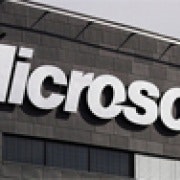Can Samsung copy Apple's mojo?
I have asked in the past: Why doesn’t anybody copy Apple?
Put another way: Why is it that everyone wants to copy Apple’s products but nobody wants to copy being Apple?
Being Apple means, at least:
- Insourcing all aspects of operations which affect the customer experience. Increasingly that has meant insourcing everything, a toxic idea to every MBA-trained professional since forever.
- Organising functionally and having no product level P/L responsibility. That also means removing almost all incentives for employees to climb ladders and thus prove their worth.
- Developing products using integrated “heroic” efforts which shun every best (or even adequate) process for product development.
I asked somewhat rhetorically because it’s an open question. Apple’s operating model and devotion to integration have been asymmetric to technology dogma for decades. To the casual (naïve) observer, pursuing the Apple way seemed also to be tied to one individual. You could not “be Apple” unless you were also Steve Jobs and there was only one of him.
But it seems I did not give enough credit to other observers.
According to Microsoft, they began negotiating the buying of Nokia assets in earnest (coincidentally) in February. It has, also since February, been planning a massive re-organisation along functional lines. Thus, by owning significant hardware operations and organising functionally, Microsoft might go about two thirds toward “being Apple-like”. The development process is the final hurdle and it may be a bridge too far, but my thesis that nobody wants to copy Apple is now in tatters.
And it gets worse. We can see a similar, though far weaker, example in Google’s approach to integration. Their purchase of Motorola did not result in an integrated business, with Motorola being kept at arm’s length and allowed to wither on the vine. Crucially, while Google bought Motorola’s IP, Microsoft only licensed Nokia’s. Microsoft clearly valued Nokia for something different than what Google valued Motorola for.
Nevertheless there is a semblance of similarity. We can generalise enough and say that Apple (iOS), Google (Android/Chrome) and Microsoft (Windows (Phone)) are all becoming near facsimiles of each other. They are all producers of Software, Services and Hardware. Each came from a different basis but expanded into areas which were missing.
- Google started with a service, expanded into systems software and bought into hardware.
- Apple started with hardware running its own software, expanded into application software and is developing services.
- Microsoft started with software, expanded organically into services and bought into hardware.
All three major platform companies are now racing to offer that which completes them as an integrated producer and eliminates the dependencies on others as a modular producer.
This is re-integration of the computing industry–a reversal of the dis-integration brought about by the personal computer. Mobility, it turns out, was as important to the evolution of the computing value chain as microprocessors were to the previous era. It just had the opposite effect.
I should point out that Apple was more lucky than enlightened through this sea change. Having always been integrated, Apple was out of favour during one period of the computing epoch, but, simply by surviving, its model came back into favour in the next. I don’t think anybody there foresaw just how dramatic the shift would be and how important their structure was to being successful.
But there is one company which seems left out of this discussion. Samsung is absorbing a large part of the available profits in computing today and it’s not an integrated hardware/software/services player. Does this mean that there is room to be a module in an interdependent world?
I argue that no, there isn’t. Samsung must either stretch into becoming one of the ecosystem contenders or be relegated to a commodity hardware company–a path clearly visible when looking at Chinese entrants.
Samsung itself benefited from disrupting from below and should be aware of the threat it faces as it races up-market. More importantly though there is the ability of creating new markets altogether. This new market creation and rapid iteration due to integration is what the Google/Microsoft/Apple trio are seeking.
Without the components of software (ecosystems include) and services, Samsung will depend on the good graces of suppliers. They may not be as keen to share when profits accrue to the whole rather than the part.
Horace Dediu is founder and managing director of Asymco, a Helsinki-based app developer/industry analysis advisory firm. You can find his blog here.













